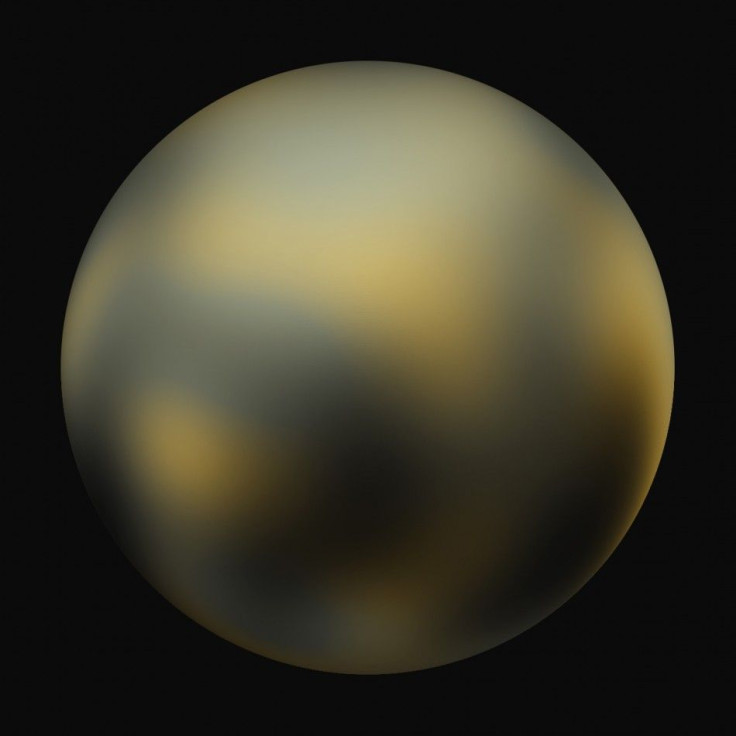Pluto's Controversy Remains: To be a Planet or a Dwarf, That's the Question

Five years ago today, Pluto ceased to be a planet, when the International Astronomical Union (IAU) demoted it to a newly created category of dwarf planet.
The decision to redefine the long-known ninth planet of the solar system remains controversial today, with some disagreements among scientists as well as confusion among the public.
Since the 1970s, whether Pluto should be categorized as a planet has challenged scientists, as the estimates of its mass and size were refined over time. Pluto was found to be smaller than Earth's moon, with a very low density.
In 2005, when an astronomer found a Kuiper belt object with more mass than Pluto, which could potentially be the tenth planet, the IAU convened a committee to decide on an official definition of a planet, in order to define the new discovery.
It was a bureaucratic problem, as it had to do with naming rights for these kinds of things, said Owen Gingerich, the Harvard-Smithsonian astronomer who chaired the committee.
The drafting of a definition could be based either on the physical nature of the objects or on the dynamic position of the object in the solar system in relation to the orbits.
After the committee's proposal was voted in 2006 at the IAU general assembly, the definition of a planet was determined. A planet must be in orbit around the sun, have enough mass for its self-gravity to overcome its compressive strength and achieve a hydrostatic equilibrium (nearly round) shape, and have cleared the neighborhood around its orbit, according to National Geographic.
According to this definition, Pluto, Ceres, and the newly discovered Eris were voted to be called dwarf planets, defined as celestial bodies orbiting the Sun that have enough mass to overcome the equilibrium but have not cleared the neighborhood around its orbit.
Some planetary scientists agreed, while others didn't.
The IAU created a problem for themselves and for astronomy. It [the definition] created an unworkable algorithm for deciding what's a planet and what's not, said Alan Stern of the Southwest Research Institute in Boulder, Colo, objecting to the criterion requiring a planet to clear its neighborhood.
Since the 2006 ruling, the issue has been further clouded by scientific advances such as discoveries of planets that don't orbit stars and new models of how our own solar system may have rearranged itself since birth, says National Geographic.
Now Pluto may be regaining its original status as a planet, after scientists recalculated Eris' size and found it to be smaller than Pluto.
The issue may be revisited in the IAU's general assembly in 2011, held in Beijing, China.
Furthermore, NASA's New Horizon spacecraft is expected to pass by Pluto in 2015,
After traveling nearly 10 years and three billin miles since its 2006 launch.
Why is the defintion of Pluto worth your attention?
Maybe it's just an argument over semantics, but we ought to be worried about semantics. We learned that lesson when the definition was changed, said Marc Kuchner, a planetary scientist at NASA's Goddard Space Flight Center in Maryland.
After the ruling, astronomers everywhere were besieged by complaints from everyone big and small. A planet is a very personal thing-we think of the Earth, the moon, and the other planets as part of our home, and maybe that's why we got so upset about Pluto.
I think that Pluto as an example of a large Kuiper Belt object is so much more interesting than Pluto as this very weird planet at the outer edge of the solar system unlike anything else, Caltech astronomer Mike Brown told Space.com. We are going to learn so much more about the solar system with our new understanding of what Pluto is.
This debate shows people, especially kids, that science is always evolving, and it's exciting, said planetary scientist Scott Sheppard of the Carnegie Institution of Washington, who hunts for faraway dwarf planets. And you should get involved in science, because there's a lot more to learn out there.
© Copyright IBTimes 2024. All rights reserved.











